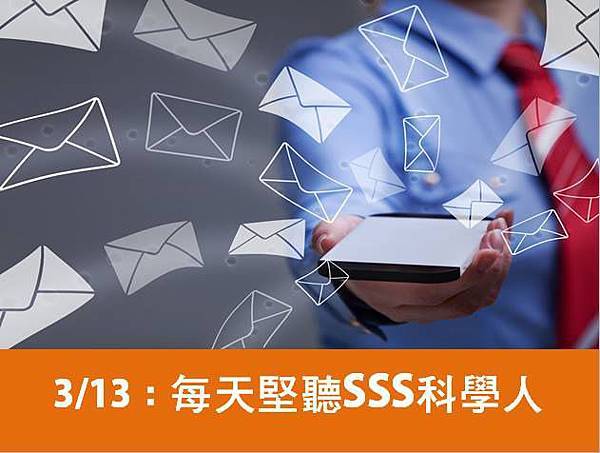 今日主題:Text Reminders Cut Binge Drinking in At-Risk Recipients 手機簡訊幫你戒酒
今日主題:Text Reminders Cut Binge Drinking in At-Risk Recipients 手機簡訊幫你戒酒
 洪欣老師推薦:托福聽力最好的課外教材:60-Second Science
洪欣老師推薦:托福聽力最好的課外教材:60-Second Science 康康精選托福會考的主題,堅持每天精聽一定會進步的哦!!
康康精選托福會考的主題,堅持每天精聽一定會進步的哦!!
 建議方法:
建議方法:
1. 先聽兩三遍 (不看文稿)
2. 再一句一句聽寫 (每句都要聽寫數遍,直到寫出85%以上的字)
3. 最後check文稿,看哪聽不出來,單字沒背過,還是發音不熟。
4. 堅持天天聽,就能每天進步哦。
 MP3音檔 (按右鍵可下載聽):喜歡的同學,幫忙推或按讚哦~~
MP3音檔 (按右鍵可下載聽):喜歡的同學,幫忙推或按讚哦~~
http://online1.tingclass.net/voa…/2016/20160113sa_health.mp3
 只有音檔怎夠,聽不懂地方,不用怕,康康幫你準備好中英文稿了:
只有音檔怎夠,聽不懂地方,不用怕,康康幫你準備好中英文稿了:
 中英文稿:
中英文稿:
Young people may seem like they’re attached to their phones—and that whatever’s on their screens is more important than what’s actually happening right in front of them. Now scientists may have found a way to make a positive out of that screen addiction, by using it to cut down on alcohol abuse. They report their findings in the journal PLoS ONE. [Brian Suffoletto et al, An Interactive Text Message Intervention to Reduce Binge Drinking in Young Adults: A Randomized Controlled Trial with 9-Month Outcomes]
The researchers examined medical records and identified some 800 18- to 25-year-olds who had all self-identified in surveys as binge drinkers or heavy drinkers. They had all also been admitted to emergency rooms with, for the most part, non-alcohol related injuries.
年輕人仿佛變成了手機螢幕的奴隸,以至於在螢幕中的事物仿佛比身邊的事更為重要。現在,科學家或許找到了這種螢幕上癮的一個好處,那就是用這種方法緩解酗酒。該項研究發表在《公共科學圖書館期刊》上。
The investigators divided the subjects into three groups. For twelve weeks, one group got messages on Sunday asking how much they drank, and received no additional feedback. A second group did not get any texts. But a third group received texts every Thursday asking about their weekend drinking plans. That group then got feedback designed to help them limit their drinking. On Sundays they received a follow-up check-in text and more tailored feedback.
研究人員把應試者分成了三組。在12周中,第一組應試者在周日會收到問及這周他們喝了多少簡訊,但不會收到任何回復。第二組物件不會收到任何簡訊。第三組 參與者每週四會收到問及他們本周喝酒計畫的簡訊。然後他們會收到旨在幫助他們減少喝酒的回復。在週末他們會收到後續的調查資訊與更多的量身訂造的回饋。
Lead researcher Brian Suffoletto of the University of Pittsburgh says they used texts rather than phone calls or emails because of its immediacy, and because "it really allows us to communicate behind the veil of some anonymity. So when you're face to face with an individual it's been shown that people are less likely to tell you bad things about themselves because they feel nervous that you would judge them."
匹茲堡大學的首席研究員布萊恩•蘇珂黎托說,他們使用文字資訊而不是電話或是郵件交流是因為時效性,也因為“那確實使到我們聯繫到匿名的人。而當你面對面地與他們溝通的時候,他們更少可能會說自己不好的方面,因為他們擔心你會對他們有看法。”
And the results seem to have vindicated that strategy. Six months after the study, members of the little or no interaction groups said they had not reduced their drinking at all. But those who had had gotten all the texts and feedback reported an average of one less binge drinking day per month. They appear to at least partially have gotten the message.
這項研究的結果正好證明了上述的策略。研究開展後過去了6個月,沒有或很少收到互動的兩組參與者完全沒有減少喝酒的量。然而,那些收到文字資訊與回饋的參與者平均每月減少了一天的酗酒時間。至少他們似乎瞭解了部分的資訊。



 留言列表
留言列表
